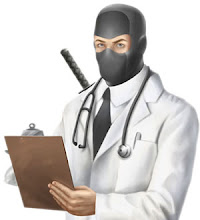Recommendations for post-sexual exposure HIV prophylaxis

Post exposure HIV prophylaxis is recommended if there is:-
* unprotected receptive anal intercourse
* unprotected receptive vaginal intercourse
* unprotected insertive vaginal intercourse
* unprotected insertive anal intercourse
* unprotected receptive fellatio with ejaculation
with a HIV positive person or if the person is a HIV risk group (gay or bisexual men, injection drug users or sex workers), and if the exposure is isolated and the patient is commited to safer sex in the future and the exposure occurred within 72 hours of presentation for care.
Exposure to persons known to be HIV infected
- if medication regimen of source patient is unknown => prescribe Zivudine (AZT/ZDV) 300mg bid + Lamivudine (Epivir) 150mg bid + Indinavir (Crixivan) 800mh q8h or nelfinavir (Virasept) 1250mg bid or 750mg tid
- Combivir 1 tablet bid may be substituted for zidovudine and lamivudine
- if medication regimen of source patient is known => prescribe 2 NRTIs and 1 protease inhibitor that are different from the source patient's regimen
- possible substitues for zidovudine and lamivudine:- stavudine (d4T/Zerit) 40mg bid for > 60kg and 30mg bid <> 60kg and 125mg for <>
Exposure to person or persons of unknown HIV status but who probably have high HIV risk factors :
- significant exposures => treat as if an exposure to a known HIV-infected person with an unknown medication regimen, as above
- exposures that might result in HIV infection => treat with zidovudine and lamivudine without a protease inhibitor
Exposure to person or persons of unknown HIV status but who probably have low HIV risk factors
- significant exposures => treat with zidovudine and lamivudine. A protease inhibitor could be added if the patient requests it, if the provider believes that the exposure history is unclear, other exposures also occurred, or if other factors relating to exposure history or HIV status are compelling
- exposures that might result in HIV infection => treat with zidovudine and lamivudine without a protease inhibitor
Additional caveats
* PEP should not be provided to patients whose exposure history has no known possibility for HIV transmission
* PEP should not be given to persons already infected with HIV
* providers may consider PEP for any patient who appears to be at risk after an HIV exposure but whose circumstances are not delineated in the above categories
Providers are reminded that PEP should only be prescribed as part of a comprehensive program to reduce future HIV risk-related behaviours. Multiple prescription requests for PEP should be strongly discouraged and must be averted through risk reduction counselling.
Definitions:
High HIV risk factors: trading sex for drugs or money, IV drug use, unprotected anal or vaginal intercourse with persons with HIV risk factors
Significant exposures include the following: anal or vaginal intercourse without a condom or with condom breakage; exposure to semen or blood onto mucosal or nonintact surfaces, and intravenous needle sharing
Examples of exposures that might result in HIV infection are as follows: cunnilingus, fellatio, semen or blood on healing skin wounds
Labels: IMMUNOLOGY, INFECTION


<< Home